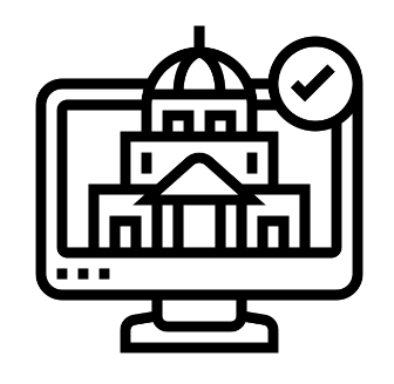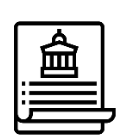A digital economy benchmark assessment was conducted to determine the degree of digitalization in SADC countries.
Six key pillars were assessed for the benchmark:
- Digital Government
- Digital Business
- ICT Infrastructure
- Innovation Driven Entrepreneurship
- Digital Skills
- Policy and Regulatory Frameworks.
More information on the methodology for the benchmark assessment can be found in the Situation Analysis Report.
Digitalization Benchmark Rankings
The table below illustrates where each country ranked in the digitalization benchmark, alongside the Global median and African median. Greater information on the benchmark index score can be found in the methodology section of the report.
| Group | Country | Benchmark Index Score (Adjusted) | Overall Benchmark Ranking |
|---|---|---|---|
| 1 | South Africa | 0.5891 | 1 |
| Mauritius | 0.5839 | 2 | |
| Seychelles | 0.5155 | 3 | |
Global Median | 0.5064 | ||
| 2 | Eswatini | 0.4222 | 4 |
| Tanzania | 0.4138 | 5 | |
| Botswana | 0.4114 | 6 | |
| 3 | Zimbabwe | 0.3895 | 7 |
| Namibia | 0.3809 | 8 | |
| Lesotho | 0.3802 | 9 | |
| African Median | 0.3595 | ||
| Zambia | 0.3506 | 10 | |
| Malawi | 0.3483 | 11 | |
| Madagascar | 0.3005 | 12 | |
| 4 | Angola | 0.2985 | 13 |
| Mozambique | 0.2919 | 14 | |
| DR Congo | 0.2782 | 15 | |
| Comoros | 0.2497 | 16 |
Four Clusters of Countries
The benchmark assessment identified four clusters of countries, indicating where SADC countries are making progress, and where they may require further development.
- Group 1: South Africa, Mauritius, and the Seychelles.
- Group 2: Eswatini, Tanzania and Botswana.
- Group 3: Zimbabwe, Namibia, Lesotho, Zambia, Malawi, and Madagascar.
- Group 4: Angola, Mozambique, the DRC, and Comoros.
Countries that ranked highest had less economic reliance and employed a smaller percentage of the population in agriculture than the regional average.
The benchmark identified two clear front-runners within SADC that are at a more advanced level in unlocking the digital economy. The role of the agriculture sector economically is smaller in these two countries and therefore distinguishes them from the rest of the sixteen SADC countries.
The Rankings Provide Insights to Where Potential Best Practices May Lie
The assessment and rankings illustrate key front-runners in the region that have better foundational pillars required for a digital economy. However, the pillar rankings suggest that learnings for some of these themes around digitalization will come from a mix of countries rather than just the top two countries, South Africa and Mauritius.
The wider region should be considered when looking for learnings, collaboration, or examples as there may be similarities shared between neighboring countries with similar country contexts and agricultural commodity systems to enable more efficient implementation.
 Benchmark Assessment: Digital Government Pillar
Benchmark Assessment: Digital Government Pillar
The Digital Government pillar measures the presence and use of digital services and platforms to enable public service delivery. The E-Government Development Index (EGDI) from 2020 was used to measure the Digital Government pillar, specifically the Online Service Index (OSI) score was used.
Benchmark Results for Digital Government Pillar
South Africa, Mauritius, Seychelles, Tanzania and Namibia scored well in the Digital Government pillar.
The full ranking of this pillar can be found below:
Rank | Digital Government Pillar (EDGI 2020, OSI) |
|---|---|
1 | South Africa |
2 | Mauritius |
3 | Seychelles |
4 | Tanzania |
5 | Namibia |
6 | Zimbabwe |
7 | Mozambique |
8 | Angola |
9 | Eswatini |
10 | Malawi |
11 | Botswana |
12 | Lesotho |
13 | Madagascar |
14 | Zambia |
15 | DRC |
16 | Comoros |
 Benchmark Assessment: Digital Business Pillar
Benchmark Assessment: Digital Business Pillar
The Digital Business pillar measures the development of a robust marketplace for digital trade, digital financial services, and a digital content. The Global Competitiveness Index (GCI) from 2019 was used to measure the Digital Business pillar, specifically the Business Dynamism Component score was used.
Benchmark Results for Digital Business Pillar
Mauritius, South Africa, Seychelles, Zambia and Botswana scored well in the Digital Business pillar. No data was available for Comoros and is therefore not included in the ranking. The full ranking of this pillar can be found below:
Rank | Digital Business (GCI 2019, Business Dynamism Component) |
|---|---|
1 | Mauritius |
2 | South Africa |
3 | Seychelles |
4 | Zambia |
5 | Botswana |
6 | Tanzania |
7 | Madagascar |
8 | Namibia |
9 | Eswatini |
10 | Lesotho |
11 | Malawi |
12 | Mozambique |
13 | Zimbabwe |
14 | DRC |
15 | Angola |
16 |
 Benchmark Assessment: ICT Infrastructure Pillar
Benchmark Assessment: ICT Infrastructure Pillar
The ICT Infrastructure pillar measures the availability of affordable, accessible, resilient, and reliable infrastructure. The Africa Infrastructure Development Index (AIDI) from 2020 was used to measure the ICT Infrastructure pillar, specifically the ICT Composite Index score was used.
Benchmark Results for ICT Infrastructure Pillar
South Africa, Mauritius, Seychelles, Botswana and Namibia scored well in the ICT Infrastructure pillar. The full ranking of this pillar can be found below:
Rank | ICT Infrastructure (AIDI 2020, ICT Composite Index) |
|---|---|
1 | South Africa |
2 | Mauritius |
3 | Seychelles |
4 | Botswana |
5 | Namibia |
6 | Zimbabwe |
7 | Eswatini |
8 | Zambia |
9 | Lesotho |
10 | Tanzania |
11 | Mozambique |
12 | Angola |
13 | Comoros |
14 | Malawi |
15 | DRC |
16 | Madagascar |
B enchmark Assessment: Innovation Driven Entrepreneurship Pillar
enchmark Assessment: Innovation Driven Entrepreneurship Pillar
The Innovation Driven Entrepreneurship pillar measures the presence of an ecosystem that supports homegrown firms to generate world-class products and services that help to widen and deepen digital economic transformation.
The Global Innovation Index (GII) from 2021 was used to measure the Innovation Driven Entrepreneurship pillar.
Benchmark Results for Innovation Driven Entrepreneurship Pillar
Mauritius, South Africa, Tanzania, Namibia and Botswana scored well in the Innovation Driven Entrepreneurship pillar. Data was not available for Comoros, Democratic Republic of Congo, Eswatini, Lesotho, and Seychelles and is therefore not included in the ranking.
The full ranking of this pillar can be found below:
Rank | Innovation Driven Entrepreneurship (GII 2021) |
|---|---|
1 | Mauritius |
2 | South Africa |
3 | Tanzania |
4 | Namibia |
5 | Botswana |
6 | Malawi |
7 | Madagascar |
8 | Zimbabwe |
9 | Zambia |
10 | Mozambique |
11 | Angola |
12 | |
13 | |
14 | |
15 | |
16 |
 Benchmark Assessment: Digital Skills Pillar
Benchmark Assessment: Digital Skills Pillar
The Digital Skills pillar measures the development of a digitally skilled workforce that is grounded on sound ethical practices and socio-cultural values. The Global Competitiveness Index (GCI) from 2019 was used to measure the Digital Skills pillar, specifically the Digital Skills Among Active Population score was used.
Benchmark Results for Digital Skills Pillar
Seychelles, Mauritius, Zimbabwe, Tanzania and Botswana scored well in the Digital Skills pillar. Data was not available for Comoros and the Democratic Republic of Congo and is therefore not included in the ranking.
The full ranking of this pillar can be found below:
Rank | Digital Skills (GCI 2019, Digital Skills) |
|---|---|
1 | Seychelles |
2 | Mauritius |
3 | Zimbabwe |
4 | Tanzania |
5 | Botswana |
6 | Namibia |
7 | Zambia |
8 | Lesotho |
9 | Eswatini |
10 | South Africa |
11 | Madagascar |
12 | Malawi |
13 | Mozambique |
14 | Angola |
15 | |
16 |
 Benchmark Assessment: Policy and Regulatory Frameworks Pillar
Benchmark Assessment: Policy and Regulatory Frameworks Pillar
The Policy and Regulatory Frameworks pillar measures the presence of policies and regulations that are dynamic, flexible and promote the digital economy. The ITU G5 Benchmark Index from 2021 was used to measure the Policy and Regulatory Frameworks pillar.
Benchmark Results for Policy and Regulatory Frameworks Pillar
South Africa, Mauritius, Botswana, Malawi and Eswatini scored well in the Policy and Regulatory Frameworks pillar.
The full ranking of this pillar can be found below:
Rank | Policy and Regulatory Frameworks (ITU G5 Benchmark Index 2021) |
|---|---|
1 | South Africa |
2 | Mauritius |
3 | Botswana |
4 | Malawi |
5 | Eswatini |
6 | DRC |
7 | Tanzania |
8 | Zambia |
9 | Lesotho |
10 | Zimbabwe |
11 | Angola |
12 | Madagascar |
13 | Namibia |
14 | Comoros |
15 | Mozambique |
16 | Seychelles |
Icons - credit to NounProject https://thenounproject.com/






